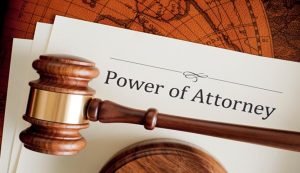An attorney-in-fact, also known as an agent, is authorized by a power of attorney (POA) to act on behalf of another individual, referred to as the principal. It grants the agent the authority to make decisions and take actions regarding the principal’s finances, property, healthcare, or other specified matters. This article explores the intricacies of POAs, their different types, uses, and the importance of careful planning in their creation.
Understanding the Power Dynamic
The core concept of a POA revolves around agency law. The principal grants the agent the legal right to represent them, effectively creating a fiduciary relationship. This relationship demands the agent to act in the principal’s best interests and with utmost good faith.
There are two key parties involved in a POA:
- Principal: The person who creates the POA and grants the decision-making authority.
- Agent (Attorney-in-Fact): The trusted individual designated by the principal to act on their behalf.
It’s crucial to remember that the POA does not transfer ownership of assets. The principal retains ownership of everything, and the agent simply has the authorized power to manage it according to the POA’s stipulations.
Types of Powers of Attorney
POAs come in various forms, each tailored to specific situations. The following is a breakdown of the most common types:
- General Power of Attorney: Grants broad authority to the agent to handle a wide range of the principal’s financial and legal affairs. This is typically used when the principal anticipates long-term incapacity or absence.
- Special Power of Attorney: Limits the agent’s authority to specific tasks or situations. This could involve selling a particular property, managing a bank account, or making healthcare decisions during a medical procedure.

- Durable Power of Attorney: holds true even in the event that the principal loses capacity. This is vital for ensuring continuity of care and financial management when the principal can no longer make decisions themselves.
- Springing Power of Attorney: Takes effect only upon the occurrence of a specific event, such as the principal’s mental incapacity being declared by a doctor.
- Financial Power of Attorney: Grants the agent authority to manage the principal’s finances, including paying bills, investing assets, and handling bank accounts.
- Healthcare Power of Attorney: Also known as a medical POA, it authorizes the agent to make healthcare decisions for the principal if they are unable to do so themselves. This includes consenting to medical treatments, withholding or withdrawing life support, and communicating with healthcare providers.
When is a Power of Attorney Necessary?
There are several situations where a POA becomes essential:
- Incapacity due to illness or injury: If the principal becomes mentally or physically unable to manage their affairs, a POA ensures someone they trust can handle their finances, healthcare, and other essential matters.
- Travel or extended absence: For individuals traveling or residing abroad for extended periods, a POA can authorize someone to manage their bills, property, or other concerns back home.
- Long-term care planning: As people age, the possibility of needing assistance with daily living increases. A POA allows them to designate someone to make decisions about their care and finances.
- Business management: Business owners can use POAs to empower others to handle specific business functions during their absence or incapacity.

Creating a Power of Attorney
The process for creating a POA varies by state. Here are some general guidelines:
- Consultation with an Attorney: It’s highly recommended to consult with an attorney specializing in estate planning to ensure the POA accurately reflects the principal’s wishes and complies with state regulations.https://www.consumerfinance.gov/ask-cfpb/what-is-a-power-of-attorney-poa-en-1149/
- Selection of Agent: Choosing a trustworthy and responsible individual who understands the principal’s wishes and financial situation is crucial.
- Specifying Powers: The POA needs to clearly define the scope of the agent’s authority, including the types of decisions they can make and any limitations.
- Signing and Witnessing: Following state-specific requirements, the POA needs to be signed by the principal, often in the presence of witnesses and a notary public.
- Safekeeping and Distribution: The original POA should be securely stored with the principal and a copy provided to the agent and any relevant institutions.
